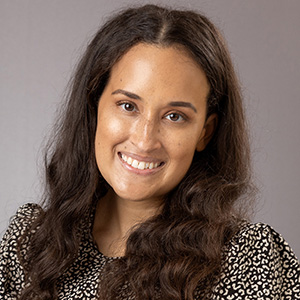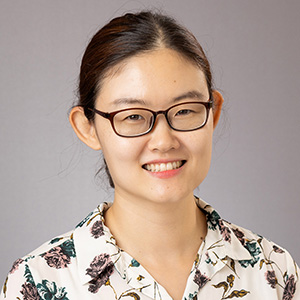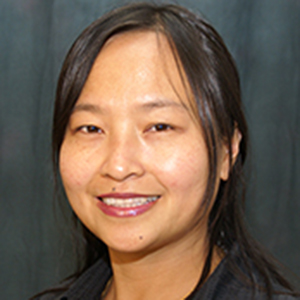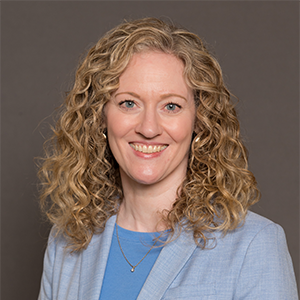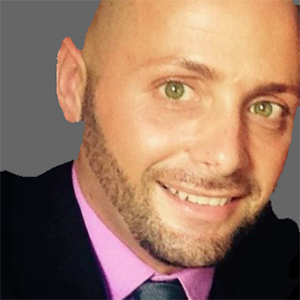Unlock Boundless Opportunities with a Doctorate from Rutgers in Counseling and Psychiatric Rehabilitation
Our graduates become scholars, researchers, educators, supervisors and leaders in the fields of both Psychiatric Rehabilitation and Counselor Education and Supervision. We offer two tracks within the Ph.D. in Psychiatric Rehabilitation Counseling program: Psychiatric Rehabilitation Research Track and Counselor Education and Supervision Track.
Why Study Psychiatric Rehabilitation Counseling at SHP?
Graduates of SHP’s Ph.D. in Psychiatric Rehabilitation Counseling program have a wide range of career opportunities available to them. Our graduates are employed as Faculty members in colleges and universities, Academic program directors, College and university administrators, and Behavioral health specialists.
Program Highlights
Our doctoral program is part-time as most students are working in community mental health-related jobs while pursuing their degree. To accommodate the working professional, classes are offered in-person on the Piscataway campus in the evenings between 6 and 9 p.m.
Fast Facts:
-
- Our program is the only Ph.D. in Psychiatric Rehabilitation Counseling in the country.
- Students can co-teach with faculty at different educational levels within the department.
- Doctoral students are encouraged and supported to work with faculty on funded research studies
- Doctoral faculty are nationally and internationally recognized for their research and scholarship in psychiatric rehabilitation
- All doctoral classes are small and offer a high level of student-faculty interaction.
Program Overview
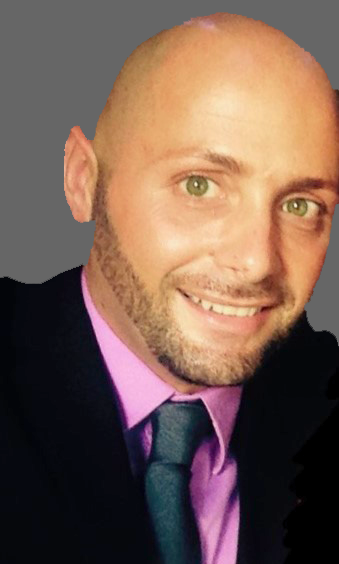
Anthony Zazzarino
We offer two tracks within the Ph.D. in Psychiatric Rehabilitation Counseling program: a Counselor Education & Supervision (CES) Track and a Psychiatric Rehabilitation Research Track. The CES track is in the process of seeking accreditation and supports the development of counselor educators with an emphasis on psychiatric rehabilitation.
The rehabilitation research track is the only doctoral program in the country that prepares students to be leaders in the field of psychiatric rehabilitation, supporting individuals with a serious mental health condition. Graduates from both tracks excel in the field as educators, advocates, researchers, supervisors, and clinicians.
The doctoral program has a total of 31 students (13 students in the CES track and 18 students in the traditional research track).
Each semester, the doctoral program offers approximately 4-6 courses, along with dissertation research support. Students in the CES track can work toward licensure as a professional counselor and obtain their approved clinical supervisor certification. In both programs, students are publishing in peer reviewed journals, presenting at state and national conferences, and seeking leadership roles within professional organizations.
The program currently has four core faculty assigned to teach required courses in the program plus additional full-time Department faculty who teach selected courses in the program. Student outcomes are evaluated each year on a variety of different metrics that are part of the overall program evaluation.
Areas of study include psychiatric rehabilitation practice, organization and systems change, program evaluation and outcome assessment, health and wellness, and other emerging topics. Students will develop a high level of skill in teaching, research and scholarship, and advocacy related to the psychiatric rehabilitation discipline.
Doctoral students in the Psychiatric Rehabilitation Research Track will:
- Develop expertise in the evidence-based and promising practices of psychiatric rehabilitation
- Establish collaborative relationships with faculty in the areas of psychiatric rehabilitation practices, teaching, research, and professional writing
- Contribute to and promote scholarly research related to psychiatric rehabilitation and the advancement of the psychiatric rehabilitation discipline
The mission of the program is to prepare individuals to be leaders in the field of counselor education, where students will be able to develop and refine their counselor identity, focusing on clinical, research, teaching, supervision, and/or leadership and advocacy skills.
The program specializes in counseling approaches and techniques for individuals with disabilities of all types, including psychiatric, physical, sensory and developmental. Students will also develop a high level of skill in teaching and clinical supervision related to the counseling profession. Additionally, students will actively participate in professional counseling organizations and contribute to and promote scholarly research related to counseling. Throughout the program, we emphasize the importance of increasing diversity, equity, and inclusion within the counseling profession as a way to serve the community, which is consistent with the mission of the School of Health Professions.
This track specializes in counseling approaches and techniques for individuals with psychiatric conditions. Students will also develop a high level of skill in teaching, clinical supervision, research, and leadership and advocacy related to the professional counseling discipline.
Program Objectives:
- Fulfill leadership roles in the counseling field, advocating for the discipline and the individuals served by the discipline.
- Plan, conduct, and defend original research that creates or tests new concepts, hypotheses, models, and/or theories that contribute to the advancement of the counseling field.
- Utilize effective teaching techniques to convey knowledge in counseling and counselor education.
- Apply the core goals, values, and principles of psychiatric rehabilitation and counseling to all research, scholarship, education, and clinical endeavors.
- Collaborate with others to advance the scientific bases of knowledge in counseling and counselor education via ongoing research and scholarship.
- Critically review, appraise, and synthesize relevant published literature related to counseling and counselor education.
- Communicate competently through oral, written, and electronic methods.
- Integrate the principles of ethics and cultural sensitivity and competence, related to counseling and counselor education, within all interpersonal and professional activities.
Accreditation
The Ph.D. Psychiatric Rehabilitation Counseling, Counselor Education & Supervision track, is currently seeing accreditation from the Council for Accreditation of Counseling and Related Educational Programs.
Accreditation
The program is in the process of seeking accreditation by the Council for Accreditation of Counseling and Related Educational Programs (CACREP) for the Counselor Education and Supervision track. The program will be submitting their self-study to CACREP at the end of 2023.
For more information, contact Assistant Program Director, Anthony Zazzarino, PhD, LPC, ACS, CPRP at asz28@shp.rutgers.edu.
Program Outcomes
For the Counselor Education and Supervision Track only
The Ph.D. in Psychiatric Rehabilitation Counseling offers two separate tracks: a counselor education & supervision (CES) track and a traditional research track. The CES track is in the process of seeking accreditation and supports the development of counselor educators with an emphasis on psychiatric rehabilitation.
The traditional research track is the only doctoral program in the country that prepares students to be leaders in the field of psychiatric rehabilitation, supporting individuals with a serious mental health condition. Graduates from both tracks excel in the field as educators, advocates, researchers, supervisors, and clinicians.
The doctoral program has a total of 31 students (13 students in the CES track and 18 students in the traditional research track).
Each semester, the doctoral program offers approximately 4-6 courses, along with dissertation research support. Students in the CES track can work toward licensure as a professional counselor and obtain their approved clinical supervisor certification. In both programs, students are publishing in peer reviewed journals, presenting at state and national conferences, and seeking leadership roles within professional organizations.
The program currently has four core faculty assigned to teach required courses in the program plus additional full-time Department faculty who teach selected courses in the program. Student outcomes are evaluated each year on a variety of different metrics that are part of the overall program evaluation. Core faculty are listed below.
Anthony Zazzarino, Ph.D. Assistant Director
Aubrey Daniels, Ph.D.
SunHee Eissenstat, Ph.D.
Weili Lu, Ph.D.
Information about tuition and fees is available at http://shp.rutgers.edu, select Students, then Current Students and Tuition and Fees.
Information about financial aid is available from the Rutgers Health Financial Aid Office at http://shp.rutgers.edu, select Students, then Current Students and Financial Aid. SHP offers scholarships available to both incoming and continuing students.
Information about SHP scholarships is available at http://shp.rutgers.edu, select Students, then Current Students and Scholarships.
You must be accepted as a matriculated student to be eligible for a SHP scholarship. Most SHP scholarships are based on financial need, and it is recommended to submit the Free Application for Federal Student Aid (FAFSA) in addition to the SHP scholarship application and your transcripts.
When applying for SHP scholarships, be sure to read the application directions carefully and follow all directions. Incomplete applications are not considered. One application can be used to apply for all SHP scholarships. Please check the SHP website for the closing date for applications.
For the 2022-2023 academic year, 6 are currently in the dissertation process, with 3 more students expected to enter the dissertation process. Below is information concerning the program’s student retention rate by entering cohort over the period from 2020 through 2023.
Student Retention: Students Beginning in Years 2020 Through 2023
| Academic Year | # in Beginning of Year | New Admissions | Graduates | # at End of Year | Reason for Discrepancy |
| 2020-2021 | 9 | 5 | 0 | 13 | |
| 2021-2022 | 13 | 3 | 0 | 14 | students withdrew from the program |
| 2022-2023 | 14 | 1 | 0 | 14 | student academically dismissed |
| 2023-2024 | 13 | 0 | 13 | student academically dismissed |
Accreditation
The program is in the process of seeking accreditation by the Council for Accreditation of Counseling and Related Educational Programs (CACREP) for the Counselor Education and Supervision track. The program will be submitting their self-study to CACREP at the end of 2023.
For more information, contact Assistant Program Director, Anthony Zazzarino, PhD, LPC, ACS, CPRP at asz28@shp.rutgers.edu.
Admission Criteria
Students are admitted to the Ph.D. in Psychiatric Rehabilitation only in the Fall semester.
Application to the Ph.D. in Psychiatric Rehabilitation Counseling, Counselor Education and Supervision Track or for the Research Track program must be submitted through the AHCAS application portal. Deadline to apply is May 15.
Admission Requirements
- Completion of bachelor’s or master’s degree in related field
- Rutgers School of Health Professions application
- Official transcripts from undergraduate and graduate (if applicable) education
- Personal statement identifying interest in degree, future professional plans, and research interests
- Three letters of recommendation (evaluation)
- Resume or Curriculum Vitae
- Experience with individuals with psychiatric conditions
- GRE not required
- Completion of graduate level coursework including (any missing content can be completed before or concurrently with initial doctoral coursework):
- CACREP entry-level core curricular standards,
- CACREP entry-level professional practice standards, and
- CACREP entry-level curricular requirements of a specialty area.
- Rutgers School of Health Professions application
- Official transcripts from undergraduate and graduate education
- Personal statement identifying interest in degree, future professional plans, and research interests
- Three letters of recommendation (evaluation)
- Resume or Curriculum Vitae
- Experience with individuals with psychiatric conditions preferred
- GRE not required
SHP Tuition and Fees
For Tuition and Fees, please see the Graduate Tuition and Fees.
(Scroll down to 2024-2025 Rutgers Health Tuition and Fee Rates and click on School of Health Professions)
For Financial Aid information, please visit https://scarlethub.rutgers.edu/financial-services/
Curriculum
We recommend that students take two classes in the Fall and Spring semesters and one class in the Summer semester.
All doctoral students are required to pass a candidacy exam after completing the majority of their coursework but before beginning their Dissertation Sequence.
Guided by an experienced dissertation committee, students will be provided the supervision, support, and encouragement to produce state-of-the-art dissertation research with high utility for professional application. The supervision of doctoral students and dissertation research are expressly recognized as important faculty roles.
Total number of credits needed: 76
Foundational Coursework: 10 credits
- PSRT5090 Mental Health and The Law 1 credit
- PSRT5101 Seminar in Psychiatric Rehabilitation 3 credits
- PSRT6120 Advanced Theories of Counseling 3 credits
Research Coursework: 21 credits
- PSRT5311 Statistical Methods 3 credits
- PSRT5321 Applied Research in Rehabilitation 3 credits
- PSRT6015 General Linear Model 3 credits
- PSRT6025 Tests and Measurements 3 credits
- PSRT6107 Multivariate Statistics 3 credits
- PSRT6211 Seminar in Qualitative Methods 3 credits
- PSRT6322 Evaluation Research 3 credits
Rehabilitation Methods Coursework: 12 credits
- PSRT5051 Sem in Evidence-Based & Prom. Pract. 3 credits
- PSRT5102 Counseling Techniques I 3 credits
- PSRT5111 Program and Org Development in PSR 3 credits
- PSRT5201 Career Development Theory 3 credits
- PSRT5212 Personnel Manag. And Supervision 3 credits
- PSRT5310 Psychopathology 3 credits
- PSRT5315 Evaluation and Assessment 3 credits
- PSRT5320 Social and Cultural Diversity Issues 3 credits
- PSRT6116 Wellness and Recovery 3 credits
Teaching Coursework: 6 credits
- PSRT7000 Teaching in Counselor Education 3 credits
- PSRT6101 Independent Study in Psych Rehab 3 credits
- Research Practicum: 3 credits
- PSRT6101 Independent Study in Psych Rehab 3 credits
Dissertation Sequence: 12 credits
- PSRT7001 Dissertation Seminar I 3 credits
- PSRT7003 Dissertation Seminar II 3 credits
- PSRT6301 Advanced Doctoral Seminar 3 credits
- PSRT7005 Dissertation Research 3 credits
- PSRT7007 Dissertation Writing 3 credits
Elective Coursework
12 credits of electives chosen in consultation with advisor.
Note: Graduate coursework from other universities can be considered for transfer into the program.
Courses and Requirements for Graduation can be found here.
Total number of credits needed: 64
Core Coursework: 7 credits
- PSRT5090 Mental Health and The Law 1 credit
- PSRT6000 Fundamentals of Clinical Supervision 3 credits
- PSRT6120 Advanced Theories of Counseling 3 credits
Research Coursework: 21 credits
- IDST 6121 Data Analysis and Interpretation I 3 credits
- PSRT5311 Statistical Methods 3 credits
- PSRT5321 Applied Research in Rehabilitation 3 credits
- PSRT6015 General Linear Model 3 credits
- PSRT6025 Tests and Measurements 3 credits
- PSRT6107 Multivariate Statistics 3 credits
- PSRT6211 Seminar in Qualitative Methods 3 credits
- PSRT6322 Evaluation Research 3 credits
Teaching Coursework: 3 credits
- PSRT7000 Teaching in Counselor Education 3 credits
- Health Leadership Coursework: 3 credits
- PSRT6305 Seminar in Counselor Leadership and Advocacy 3 credits
Practicum/Internship: 9 credits - PSRT7101 Advanced Doctoral Practicum 3 credits
- PSRT7019 Doctoral Internship I 3 credits
- PSRT7029 Doctoral Internship II 3 credits
Specialization Coursework: 9 credits
- PSRT5101 Seminar in Psychiatric Rehabilitation 3 credits
- PSRT6121 Specialized Evidence-Based Counseling Approaches 3 credits
- PSRT6301 Advanced Doctoral Seminar 3 credits
Dissertation Sequence: 12 credits
- PSRT7001 Dissertation Seminar I 3 credits
- PSRT7003 Dissertation Seminar II 3 credits
- PSRT7005 Dissertation Research 3 credits
- PSRT7007 Dissertation Writing 3 credits
Current Students
Disability Services
As a Rutgers School of Health Professions student, you are part of the Rutgers Health division. To request accommodations or learn more about RBHS Disability Services please visit the Rutgers Health Disability Services website.
Dissertation Procedures
Please see Policy 7.1 “PhD Student Standards” below which includes information on:
- Dissertation Committees / Readers
- Dissertation Proposal and Format
- Dissertation Proposal Hearing/Data Collection
- Dissertation Defense
- Post Dissertation Requirements and more
Dissertation Policy can be found here.
Professional Liability Insurance
Students must be covered by professional liability insurance while participating in practicum or internship experiences. Under the Memoranda of Understanding (MOU), the University provides professional and general liability coverage for the student performing activities under the terms of the MOU agreement. This coverage provides for limits of coverage of not less than $1,000,000 per occurrence and $3,000,000 in the aggregate, provided through a Program of Self-Insurance.
Students may wish to make arrangements to obtain their own professional liability insurance. This is a recommended practice followed by many counseling professionals even when insurance is provided by the agency. Such insurance is available at low cost through one of the professional associations. American Counseling Association (ACA) student membership includes liability insurance for ACA student members enrolled and engaged in a master’s degree counseling curriculum at a post-secondary institution. This coverage is solely while performing counseling services such as the practicum and internship related to such curriculum. Additional information is available at www.counseling.org select Membership and then Membership Benefits.
FAQs
The Ph.D. in Psychiatric Rehabilitation Counseling has two tracks: Traditional Psychiatric Rehabilitation Counseling track and Counselor Education and Supervision track.
The Traditional Psychiatric Rehabilitation Counseling track focuses on psychiatric rehabilitation practices, organization and systems change, program evaluation and outcome assessment, health and wellness approaches, and other emerging topics.
The Counselor Education and Supervision track focuses on developing advanced counseling techniques and expertise as well as clinical supervision skills. Both tracks focus on research, scholarship, and clinical approaches and techniques related to individuals with psychiatric conditions. Both tracks also emphasize the development of teaching, statistics, and research methodology skills.
The Traditional Psychiatric Rehabilitation Counseling track prepares students to become scholars, researchers, educators, supervisors, and leaders in the fields of Psychiatric Rehabilitation.
The Counselor Education and Supervision track prepares students for professional roles as counselor educators, clinical supervisors, researchers, and leaders and advocates within the counseling field.
The majority of graduates from the Ph.D. in Psychiatric Rehabilitation Counseling are employed as faculty members in higher education settings.
Traditional Psychiatric Rehabilitation Counseling Track
- Completion of bachelor’s or master’s degree in related field
- Rutgers School of Health Professions application
- Graduate Record Exam (GRE) General Test scores taken within past 5 years
- Official transcripts from undergraduate and graduate (if applicable) education
- Personal statement identifying interest in degree, future professional plans, and research interests
- Three letters of recommendation
- Resume or Curriculum Vitae
- Experience with individuals with psychiatric conditions
Counselor Education and Supervision Track
- Completion of graduate level coursework including:
- CACREP entry-level core curricular standards,
- CACREP entry-level professional practice standards, and
- CACREP entry-level curricular requirements of a specialty area (any missing content can be completed before or concurrently with initial doctoral coursework).
- Rutgers School of Health Professions application
- Graduate Record Exam (GRE) General Test scores taken within past 5 years
- Official transcripts from undergraduate and graduate education
- Personal statement identifying interest in degree, future professional plans, and research interests
- Three letters of recommendation
- Resume or Curriculum Vitae
- Experience with individuals with psychiatric conditions preferred
Students are admitted to the Ph.D. in Psychiatric Rehabilitation Counseling only in the Fall semester. The application deadline is May 1 (for the Fall 2020 semester the deadline has been extended to June 1). To begin the application process, go to https://ahcas.liaisoncas.com/applicant-ux/#/login.
The Ph.D. in Psychiatric Rehabilitation Counseling can only be completed on a part-time basis. It is recommended that students take two courses in each of the Fall and Spring semesters and one course in the Summer semester.
No. Both tracks in the Ph.D. in Psychiatric Rehabilitation Counseling are on-campus programs and students must be able to commute to campus.
Classes are held on the Busch campus in Piscataway, NJ. A limited number of classes may be offered via an online format.
Yes. Some courses within both tracks of the Ph.D. in Psychiatric Rehabilitation Counseling programs may be taken on a non-matriculated basis. Contact the program director for guidance on which courses would be most appropriate.
Individuals who successfully complete non-matriculated courses and are later admitted into the program can apply the non-matriculated credits toward their degree.
Yes. The best source for financial aid information is at the Rutgers Student Financial Aid office. They can be contacted at 973 972-4376.
Yes. Rutgers University and the School of Health Professions offer a limited number of scholarship programs. Please note the scholarship application deadline is typically June 1.

